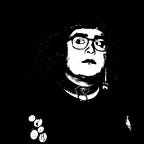Philosophical Education and the Patience of Thought
[This essay is the first in a 5-part series of short-writings that came from Todd McGowan’s 2022 Seminar on Hegel’s Phenomenology of Spirit.]
As Todd McGowan has noted in his lectures on Hegel’s preface to the Phenomenology of Spirit, the preface enacts a peculiar performative contradiction that lets readers into the nature of its project by simultaneously stating the impossibility of a preface to a work of philosophy proper while doing so. While this one instance of Hegel gesturing at his approach, it is certainly not the only one in the preface of the Phenomenology. My claim is simply that the preface of the Phenomenology of Spirit largely concerns philosophical education and the patience that philosophy takes.
The preface to the Phenomenology is characterized by the restraint that Hegel exhibits throughout the work as well as his self-awareness of the crude reception of his work (Hegel, 1977, 44). Hegel’s self-awareness comes to light in the preface at the points where he advocates for the patience inherit to philosophy proper — that philosophy takes time, space, labour, social failures, ethical impurities, historical mishaps, and crucifixions of the divine in order for it to take place properly if at all (Hegel, 1977, 17). Thus, when Hegel greets us at the preface for the Phenomenology, he tries to work out a philosophical pedagogy that we can take with us in our respective philosophical journeys (which according to Hegel, all of these journeys nonetheless will reflect the movements of the Phenomenology).
From the start, Hegel warns us about certain bad substitutes for genuine philosophy. One example would be the revelations from heaven and poetic genius that try to bypass the work of thinking altogether. Hegel regards this outlook as a form of self-conceit of its deficiency treated as if it were brilliance. Another example is the figure of sound common sense, which Hegel remarks that it relies on the rhetoric of trivial truths to dismiss any genuine concern altogether (Hegel, 1977, 42 and 43). Hegel reproaches both of these approach that treat the Absolute as immediate and as common sense on a few accounts — that their approach is impatient; that their approach cuts its work out to be easy; that their approach assumes its immediate concept of the Absolute to hold up despite any actuality that problematizes it; and that their approach aims to alleviate a contemporary loss that propels itself as a desperation for the Absolute to ground and stabilize any account of what the universe is, ultimately settling for very little in its desperation (Hegel, 1977, 4 and 5). Hegel’s attitude stress that philosophy proper requires patience to see itself through; that philosophy must embrace the difficulties of the negative wholeheartedly; that philosophy must see the concept of the Absolute to its maturation rather than getting stuck at the beginning; and that the extent of the contemporary loss can only be measured by how little satisfies its desperation. In other words, Hegel sets out an account of philosophical education and philosophical patience as if to counter these compromises of the Absolute and of philosophy proper.
Hegel outlines his understanding of formative education on two ends: (1) from the side of the individual, by taking a hold of what is at hand, processing it for its own distinctness, and making it one’s own; and (2) from the side of universal spirit as substance, where it is nothing but its own development of self-consciousness, in that it is able to bring about its own transformations and reflections by self-relating to itself (Hegel, 1977, 16 and 17).
In a didactic fashion, Hegel certainly invites to consider what is familiar to us, as we will see it become progressively defamiliarized through its analytic breakdown for the sake of understanding and comprehension only to reveal the uncritical nature of what the familiar took for granted (Hegel, 1977, 18). And it is by seeing this utter dismemberment of the familiar that philosophy gains its truth, whereby the task of formative education is to free determinate thought from its fixations and fixity in order to give actuality to the universal and impart it to spiritual life (Hegel, 1977, 20). The point is that this utter dismemberment of the familiar nonetheless acquaints us with what lasts and what endures from such a dismemberment, and it is from these remains that we recollect what we are from when we are turned asunder. We are acquainted with a fluidity of life, spirit, and truth which is otherwise lost into a state of pure deadness in these fixations which formative education is looking to overcome.
For Hegel, dogmatism is not merely a breach of reason into uncritical metaphysics in the same manner that Kant approaches them in the Critique of Pure Reason; rather, dogmatism is a fixation for the immediate which nevertheless has at its stake life, spirit, and truth as concerns that are rendered foreclosed without any negation or mediating intervention that breaks the fixation (Hegel, 1977, 27). For Hegel, Kant surely introduces a mediating intervention for dogmatism through his critical philosophy; however, his approach does not bring us back the fluidity and actuality of life, spirit, and truth as he forecloses them as incomprehensible beyond to the bounds of reason (Hegel, 1997, 32 and 33). For Hegel, seeing this formative education in philosophy means recollecting life, spirit, and truth in their fluidity and actuality by seeing the speculative process of philosophy through all the way to Absolute Knowing; and this is what Kant did not go far enough as far as Hegel’s position is concerned: since in fear of error, he feared truth unbeknownst to himself by getting ahead of himself.
References and Citations:
Hegel, G.W.F. Phenomenology of Spirit. Translated by A.V. Miller. Ed., J.N. Findlay. Oxford: Oxford University Press, 1977.
